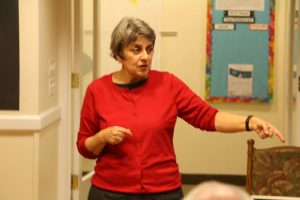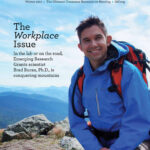 Coming to Terms with Your Hearing Loss? How to Achieve Your Best Hearing Experience.
Coming to Terms with Your Hearing Loss? How to Achieve Your Best Hearing Experience.
Pat Dobbs is a Hearing Loss Consultant and Advocate on a mission. Currently in her second year of Gallaudet University’s Peer Mentoring Program, she maintains a website, Hearing Loss Revolution, that offers stories of hope, information about technology and communication strategies, and tips for healthy adaptation to hearing difficulties.
Recently, Pat successfully completed a local pilot of her new workshop. She’ll offer a free on-line version of the workshop, and the format will be a Live Group Chat, i.e., WRITTEN TEXT ONLY (and, therefore, accessible). Participants will need a computer, wi-fi access and a little computer knowledge.
Participants will be asked to offer feedback on the workshop upon its completion.
Tuesday evenings 7:30 to 9:00 EST:
- March 28
- April 4
- April 11
- April 18
If you’re interested in participating, please contact Pat at pat@coachdobbs.com.
from HearingLossEvolution: [2020: Previously the website was www.hearinglossrevolution.com]
“I’ve had a hearing loss since I was 20. Through the years my hearing declined so much that in 2010 I received a cochlear implant. Today I hear in the average range, ‘Yahoo!’
“Through the years I was embarrassed about my hearing loss, and I seldom told people about it. If I didn’t hear what someone said, I was much more likely to “fake it” than ask them to speak to me in such a way that I could hear them. Consequently, speaking to people became difficult and painful. I dropped out of more and more social situations, became isolated, and depressed.
“But at one point, I stopped and asked myself, “Why don’t I just tell people I have a hearing loss and let them know how they can talk to me so I could hear them better?” After all, people talk to me so that I hear them, not so that I give the right facial expressions.
“I realized that I needed to change my thinking and be clear that there is nothing to be embarrassed about. Out of these thoughts came the Hearing Loss Revolution and the Nine Guiding Principles.”
Learn more about Pat Dobbs‘ hearing loss journey on the Hearing Loss Revolution website.
[NOTE: September, 2020 – Hearing Loss Revolution has changed its domain name to
www.hearinglossevolution.com]
.



 Coming to Terms with Your Hearing Loss? How to Achieve Your Best Hearing Experience.
Coming to Terms with Your Hearing Loss? How to Achieve Your Best Hearing Experience.
